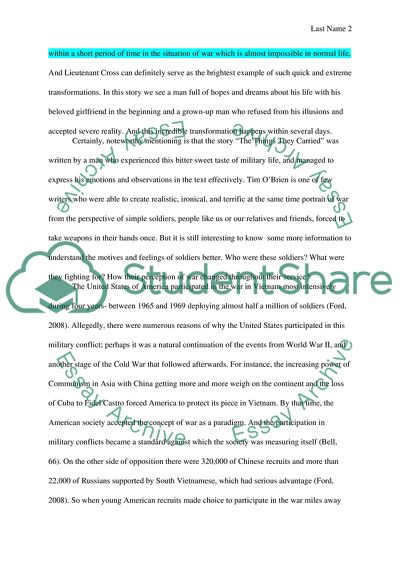Cite this document
(The Things They Carried: Jimmy Cross Book Report/Review, n.d.)
The Things They Carried: Jimmy Cross Book Report/Review. https://studentshare.org/literature/1861561-the-things-they-carried-research-paper
The Things They Carried: Jimmy Cross Book Report/Review. https://studentshare.org/literature/1861561-the-things-they-carried-research-paper
(The Things They Carried: Jimmy Cross Book Report/Review)
The Things They Carried: Jimmy Cross Book Report/Review. https://studentshare.org/literature/1861561-the-things-they-carried-research-paper.
The Things They Carried: Jimmy Cross Book Report/Review. https://studentshare.org/literature/1861561-the-things-they-carried-research-paper.
“The Things They Carried: Jimmy Cross Book Report/Review”. https://studentshare.org/literature/1861561-the-things-they-carried-research-paper.


